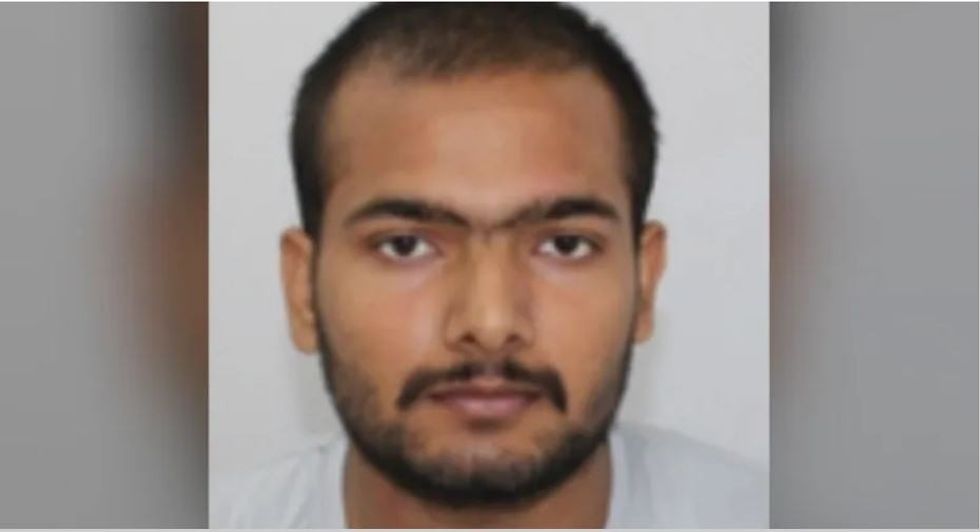INDIA's parliament was disrupted for a second day on Friday (21) and women's groups planned protests across the country over a sexual assault case during ethnic clashes in the state of Manipur.
At least 125 people have been killed and more than 40,000 have fled their homes in Manipur since the violence erupted on May 3.
The clashes in the state bordering Myanmar began when the Kuki tribal group clashed with a non-tribal group, the ethnic majority Meitei, over sharing economic benefits and quotas given to the tribes.
The trouble was quelled after New Delhi rushed thousands of paramilitary and army troops to the state of 3.2 million people.
But sporadic violence and killings resumed soon afterwards and the state has remained tense since. Videos showing women being molested in May surfaced this week and sparked national outrage.
How it started?
On May 3, members of the Kuki and Naga tribes, who inhabit Manipur's hills and are regarded as Scheduled Tribes, or India's most disadvantaged groups, launched a protest against the possible extension of their benefits to the dominant Meiteis.
The Meitei have sought special benefits for more than a decade, but received a fillip in April after the Manipur High Court recommended the government should consider the demand and set a deadline of mid-May.
Meiteis account for half of Manipur's population and extending limited affirmative action quotas to them would mean they would get a share in education and government jobs reserved for Kukis and Nagas.
Meiteis have traditionally lived in Manipur's more prosperous valley region that makes up 10 per cent of the state's area.
They have also had better access to employment and economic opportunities.
Nagas and Kukis live in the poorly developed hills.
The development imbalance favouring the valley over the hills has been a point of contention and rivalry between the ethnic groups.
Reasons behind the violence
The groups coexisted peacefully until unrelated events in recent months exposed old faultlines.
Manipur shares a nearly 400-km (250-mile) border with Myanmar and the coup there in 2021 pushed thousands of refugees into the Indian state.
Kukis share ethnic lineage with Myanmar’s Chin tribe and Meiteis feared they would be outnumbered by the arrival of the refugees.
Separately, the state government in February launched a drive to evict tribal communities from forests in the hills, saying they had encroached on government land, sparking anger among tribal people that they were being forced out of their homes.
"It has been building up for a long time, in some ways unseen and some ways quite openly, but the government was not paying attention," said Pradip Phanjoubam, editor of the Imphal Review of Arts and Politics.
Why it still continues...
Although the first outburst of violence was put down by mid-May, sporadic reprisal attacks began within days.
Both the Meiteis and Kukis are known to be flush with arms, including automatic weapons either stolen from the state police or sourced from across the border in Myanmar.
New Delhi has held talks with senior Myanmar leaders to help control armed groups that operate from across the border but this is yet to produce results.
Kuki and Meitei groups also refused to join a peace panel formed by the federal government due to differences over names included in the panel.
The Indian Army and federal paramilitary forces in the state cannot act independently and are legally bound to work with state police and authorities, who analysts say are also divided along ethnic lines.
Also, Kukis accuse the Bharatiya Janata Party-ruled state government's Chief Minister Biren Singh, a Meitei, of complicity and inaction, and have sought his removal. Singh denies the accusations.
(Reuters)



















 The investigation has identified Pankaj Lamba as the prime suspect. (Photo: Northamptonshire Police)
The investigation has identified Pankaj Lamba as the prime suspect. (Photo: Northamptonshire Police)
 From L- Jasvir Singh, MPs Diedre Costigan, Catherine West, Sarah Coombs , Kanishka Narayan, Cllr Sunny Brar and Vidhya Alakeson during the event.
From L- Jasvir Singh, MPs Diedre Costigan, Catherine West, Sarah Coombs , Kanishka Narayan, Cllr Sunny Brar and Vidhya Alakeson during the event.